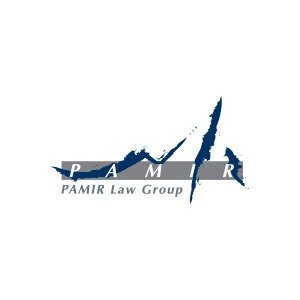Best Water Law Lawyers in Taipei
Share your needs with us, get contacted by law firms.
Free. Takes 2 min.
List of the best lawyers in Taipei, Taiwan
About Water Law in Taipei, Taiwan
Water Law in Taipei, Taiwan is a specialized area of law that governs the management, allocation, and protection of water resources within the city. It involves the regulation of water use for residential, commercial, agricultural, and industrial purposes, as well as the enforcement of standards to ensure water quality and sustainability. Taiwan’s unique geography and seasonal climate variations make water management a critical concern, particularly in the highly urbanized context of Taipei. Authorities are tasked with balancing public needs, environmental protection, and economic growth while maintaining compliance with national water policies.
Why You May Need a Lawyer
Individuals or organizations may need legal assistance with Water Law matters for a variety of reasons. Common situations include disputes over water usage rights, violations of water regulations, contamination or pollution claims, compliance with municipal water usage standards, infrastructure development projects, property development near water bodies, and business operations that require water extraction or discharge permits. Additionally, water shortages or emergencies can lead to complex legal scenarios. A lawyer can help clarify legal responsibilities, negotiate with authorities, represent clients in hearings, and ensure compliance with all required regulations.
Local Laws Overview
In Taipei, Water Law is primarily governed by the Water Act of Taiwan, municipal ordinances, and regulations established by the Taipei Water Department. These rules cover issues such as water rights allocation, public versus private water supply, water conservation, pollution control, waste water discharge, rights to develop near rivers and reservoirs, and penalties for non-compliance. The Environmental Protection Administration (EPA) enforces water pollution standards, while municipal agencies oversee distribution, usage quotas during droughts, and emergency measures. Infrastructure projects involving water resources must pass environmental assessments, and individuals or organizations must secure the necessary permits for certain types of water use or development.
Frequently Asked Questions
What is the main law governing water resources in Taipei?
The primary law is the Water Act of Taiwan, supplemented by local Taipei city regulations and the rules enforced by the Taipei Water Department and other government agencies.
Who owns the water in Taipei?
All water resources in Taiwan, including those in Taipei, are publicly owned. Individuals and organizations may receive rights to use water through permits or licenses but do not own the water itself.
How are water rights allocated?
Water rights are granted and managed by local and national authorities based on applications. Allocation takes into account user needs, sustainability, and impact on existing users and the environment.
Can property owners use water from rivers or streams on their land?
Property owners must apply for permits to legally use water from natural sources. Unauthorized use can result in fines or legal action.
What are the penalties for illegal water extraction or pollution?
Penalties include monetary fines, revocation of permits, and in severe cases, criminal prosecution depending on the level and impact of the violation.
Are there restrictions on water use during droughts?
Yes. The Taipei Water Department can impose restrictions such as rationing, reduction of water pressure, or temporary bans on certain water uses during shortages or drought emergencies.
What should I do if my property is affected by water pollution?
You can report the issue to the Environmental Protection Administration or local authorities. Legal options are also available, including seeking compensation or requiring the polluter to remediate the damage.
How do new developments get approval for water use?
Developers must conduct required environmental impact assessments and obtain all necessary permits related to water usage or waste water discharge before construction or operation.
Can businesses discharge wastewater into city sewers or rivers?
Businesses must comply with strict standards for wastewater discharge and obtain appropriate permits. Failure to meet standards can result in penalties and operational restrictions.
What are my rights if my water supply is interrupted or contaminated?
You have the right to safe water. If the city’s supply is interrupted or unsafe, authorities must address the problem. You may seek legal redress if the issue is not resolved promptly.
Additional Resources
For individuals seeking more information or support relating to Water Law in Taipei, the following resources can be helpful:
- Taipei Water Department: Manages water supply, billing, and usage regulations in Taipei
- Environmental Protection Administration (EPA), Executive Yuan: Oversees pollution and environmental standards, including water quality
- Ministry of Justice: Provides legal interpretations and access to regulations and codes, including the Water Act
- Local legal aid foundations and attorney associations: Offer advice and may connect you with qualified Water Law specialists
Next Steps
If you need legal assistance with a Water Law issue in Taipei, start by gathering all relevant documents and information about your case. Consider consulting with a lawyer who specializes in Water Law or environmental law. They can help assess your situation, explain your rights and responsibilities, and guide you through any required legal procedures. It is also advisable to contact relevant government agencies, such as the Taipei Water Department or the EPA, for guidance on regulations and reporting violations. Whether you need representation or just advice, taking action early can help you resolve issues efficiently and protect your interests.
Lawzana helps you find the best lawyers and law firms in Taipei through a curated and pre-screened list of qualified legal professionals. Our platform offers rankings and detailed profiles of attorneys and law firms, allowing you to compare based on practice areas, including Water Law, experience, and client feedback.
Each profile includes a description of the firm's areas of practice, client reviews, team members and partners, year of establishment, spoken languages, office locations, contact information, social media presence, and any published articles or resources. Most firms on our platform speak English and are experienced in both local and international legal matters.
Get a quote from top-rated law firms in Taipei, Taiwan — quickly, securely, and without unnecessary hassle.
Disclaimer:
The information provided on this page is for general informational purposes only and does not constitute legal advice. While we strive to ensure the accuracy and relevance of the content, legal information may change over time, and interpretations of the law can vary. You should always consult with a qualified legal professional for advice specific to your situation.
We disclaim all liability for actions taken or not taken based on the content of this page. If you believe any information is incorrect or outdated, please contact us, and we will review and update it where appropriate.















